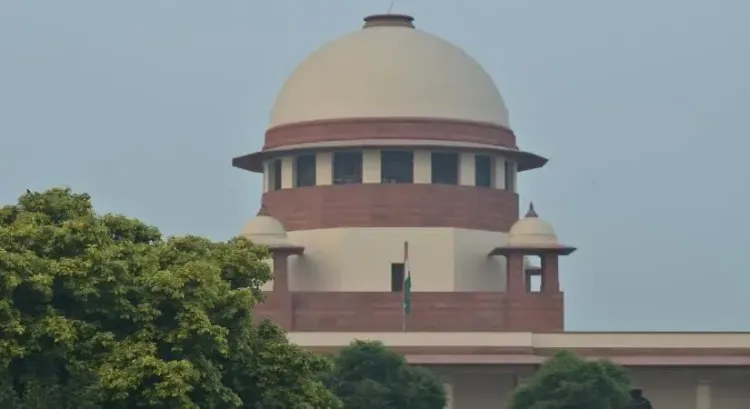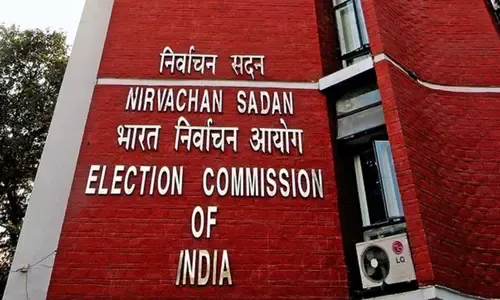Supreme Court Rules No Requirement to Notify Foreigners Registration Officer for Foreign Nationals' Bail Applications

New Delhi, Jan 6 (NationPress) The Supreme Court stated on Monday that it is unnecessary to include a Foreigners Registration Officer in a bail application submitted by a foreigner who has been charged with a crime in India. "We do not see any propriety in issuing a direction that either the Civil Authority or the Registration Officer should be made a party to a bail application filed by a foreigner or a notice of the bail application be issued to the said authorities. (T)he impleadment of the Civil Authority or Registration Officer in all bail applications filed by foreigners may result in unnecessary delay in deciding the bail applications," said a bench comprising Justices Abhay S Oka and Ujjal Bhuyan.
The provisions under the Foreigners Act, 1946 do not provide the authorities with the right to oppose a bail application from a foreign national, unless bail is sought in relation to allegations of an offence punishable under Section 14 of the 1946 Act, the Justice Oka-led bench specified.
"According to clause (b) of Section 3(2) of the (Foreigners) Act, 1946, the Central government has the authority to issue orders either generally or concerning specific foreigners or classes of foreigners, stipulating their departure from India or conditions for their departure as prescribed. (A)s of today, there has been no order issued by the Central government to implement clause (g) of Section 3(2) of the Act," it clarified.
Furthermore, even if such an order were to be issued, the authority to arrest or detain a foreign national under the Act remains separate from the criminal court’s power to grant bail, the apex court concluded.
Despite any bail granted by a criminal court, the authority to arrest and detain a foreign national can still be exercised, provided that the Central government issues an order in accordance with clause (g) of Section 3(2) of the Foreigners Act, 1946, the court explained.
Senior advocate Vinay Navare, appointed as amicus curiae (friend of the court), suggested that it would be beneficial to issue a notice to the Civil Authority while considering bail requests for foreign nationals accused of serious crimes, allowing the authority to be heard regarding bail conditions if the court is inclined to grant bail.
Rejecting this proposal, the apex court established that it is not required to involve a Foreigners Registration Officer appointed under Rule 3 of the Registration of Foreigners Rules, 1992 in the bail application of a foreign national.
"The court may direct that upon releasing a foreigner on bail, the investigating agency or state should immediately notify the relevant Registration Officer appointed under Rule 3 of the Rules about the bail grant, enabling the Registration Officer to inform the concerned Civil Authority of the bail grant," it stated.
The Supreme Court effectively issued two directives.
First, when granting bail to a foreigner, the court will instruct the prosecuting agency to promptly communicate the bail grant order to the relevant Registration Officer, who will then relay the information to all necessary authorities, including the Civil Authorities, for appropriate legal actions.
Second, the apex court directed that copies of its order be sent to the Registrar Generals of all high courts, who are to distribute the copies to all criminal courts in their respective states.










